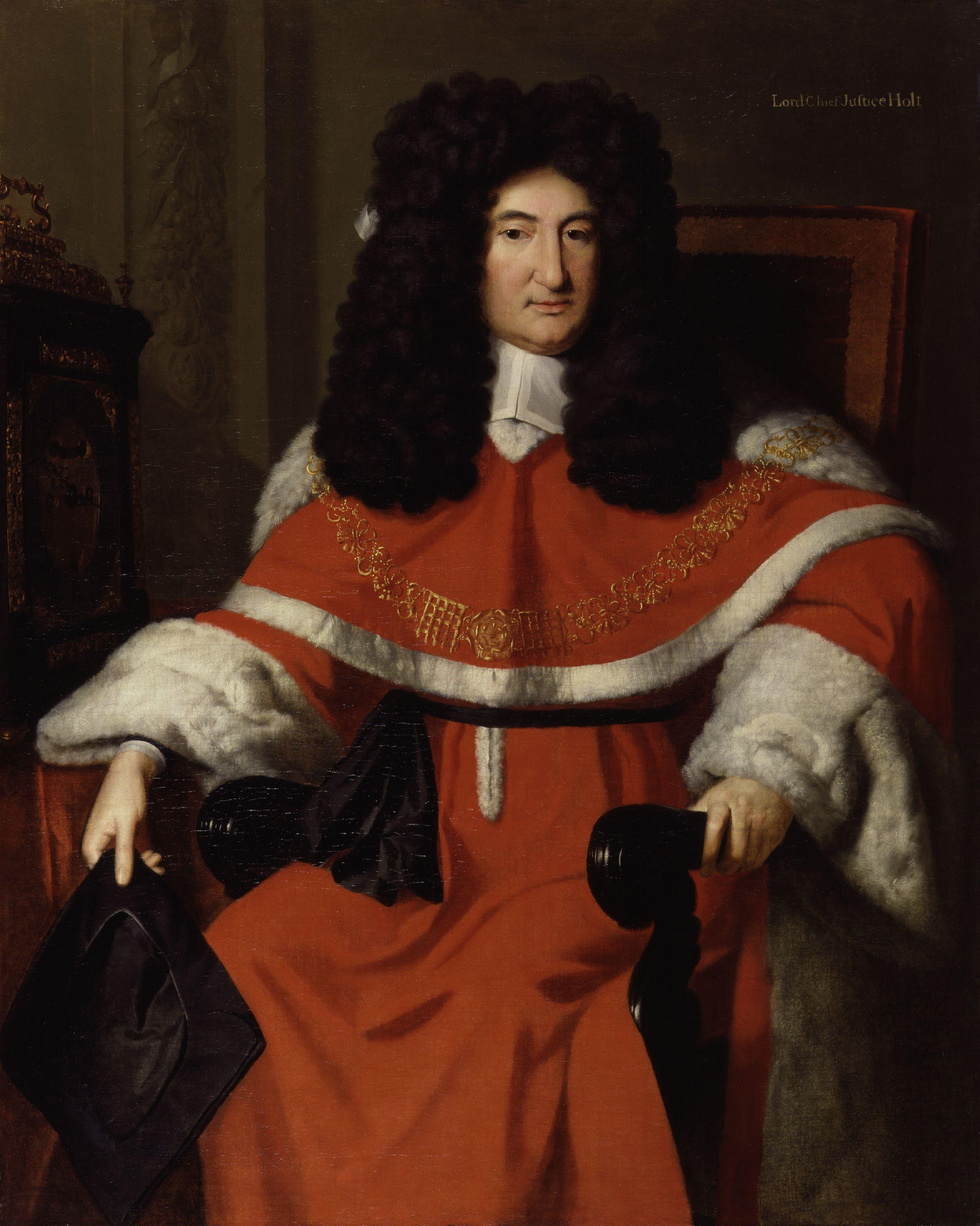Brough v. Parkings (1703), 2 Raym. 994; reported in James William Norton-Kyshe, Dictionary of Legal Quotations (1904), p. 92.
John Holt (Lord Chief Justice): Citáty anglicky
2 Raym. Rep. 953.
Ashby v. White (1703)
Rex v. Beare (1698), 1 Raym. 418. For the antiquity of this notion, see Vinnius, 741, by the law of the twelve tables.
2 Raym. Rep. 958.
Ashby v. White (1703)
“We cannot make a law, we must go according to the law. That must be our rule and direction.”
Parkyns' Case (1696), 13 How. St. Tr. 72. Compare: "We cannot make laws". Reg. v. Nash (1703), 2 Raym. 990; Powell, J., Queen v. Read (1706), Fortesc. 99.
Fortescue, J., Button v. Heyward (1722), 8 Mod. 24. This is in reference perhaps to Baker v. Pearce, 6 Mod. 23.
About
2 Raym. Rep. 954.
Ashby v. White (1703)
Ashby v. White (1703), 2 Raym. 956.
Ashby v. White (1703)
“Where a man has but one remedy to come at his right, if he loses that he loses his right.”
2 Raym. Rep. 954.
Ashby v. White (1703)
“To excuse himself from damage, must say, was ready always and at all times.”
Horn v. Lewins (1698), Fortesc. 235.
“I am far from being such a Judge as shall lay any intolerable yoke upon any one's neck.”
Philips v. Bury (1694), 2 T. R. 358.
Clark's Case (1696), 5 Mod. Rep. 320.
King against Dr. Burrel (1699), 5 Mod. 432.
Parkyns' Case (1696), 13 How. St. Tr. 73.
2 Raym. Rep. 955.
Ashby v. White (1703)
“If it be a matter within our jurisdiction, we are bound by our oaths to judge of it.”
2 Raym. Rep. 956.
Ashby v. White (1703)
